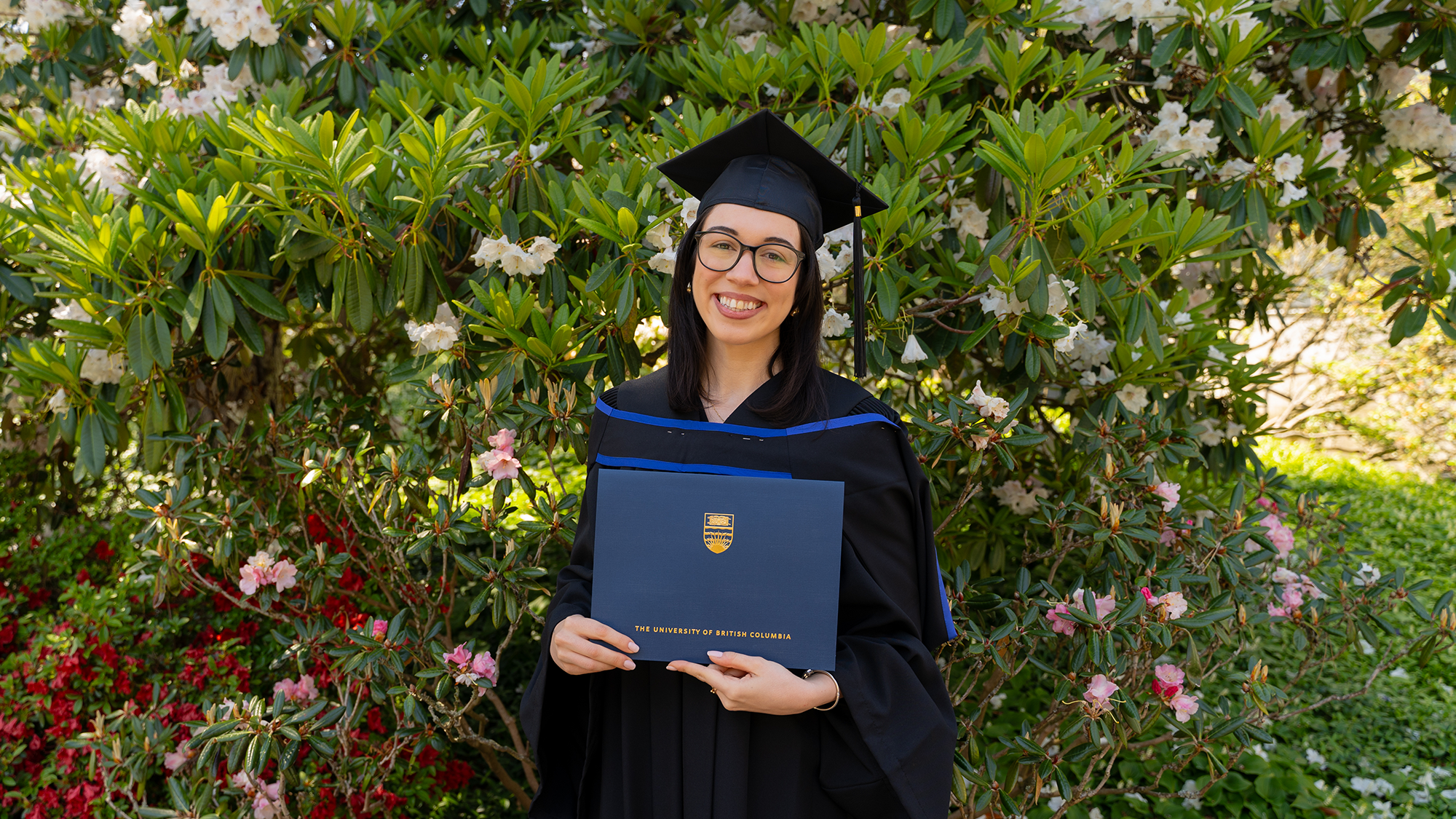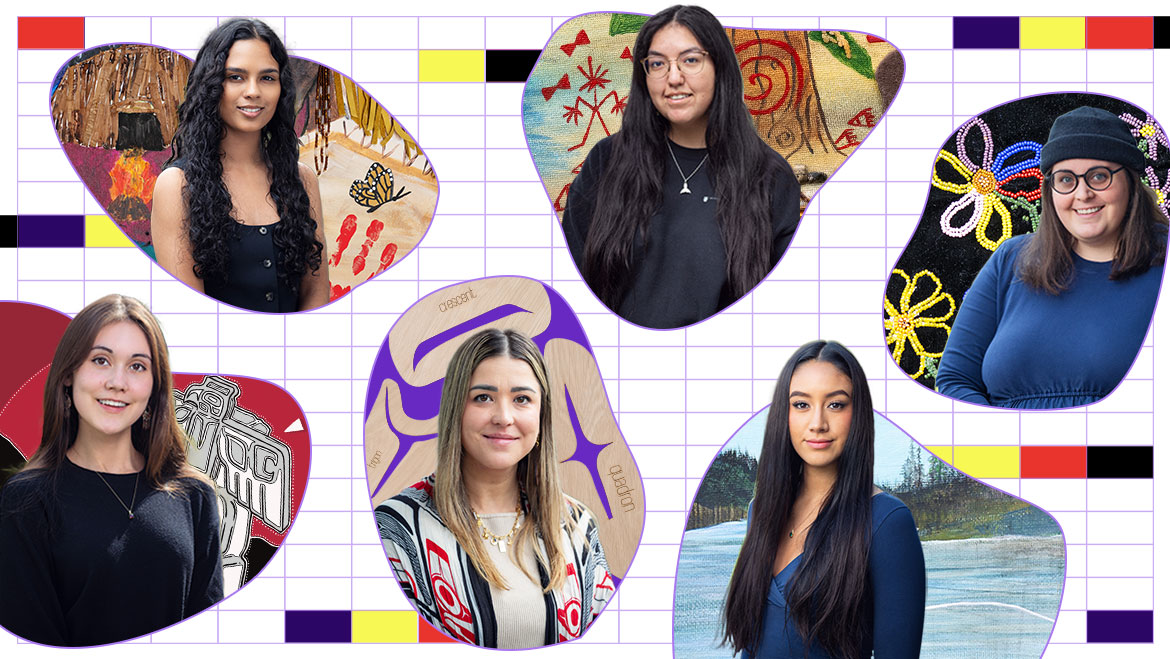The Faculty of Arts is welcoming several new faculty members to its departments, schools and institutes during the 2021-2022 academic year. Get to know who they are, what they’re working on and why they are excited to be at UBC.
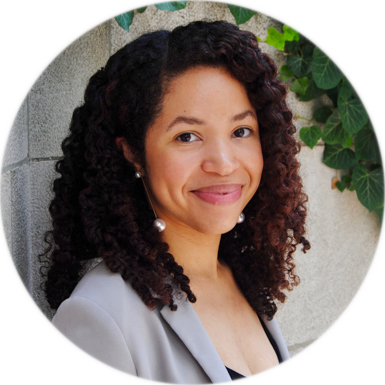

Kimberly Bain
Assistant Professor, English Language and Literatures
What is your area of research or teaching?
My most pressing and urgent scholarly and critical-creative pursuits have consolidated around the history, theory, and philosophy of the African diaspora, race, gender, environmental and medical racism, racial capitalism, the Anthropocene, and Black arts and letters. I teach survey and specialized courses on 19th century through contemporary Black and American arts and cultures, literary and critical theory, and Black feminist and queer thought.
Why are you excited about being at UBC?
I’m thrilled to be joining the growing community of Black studies scholars here at UBC.
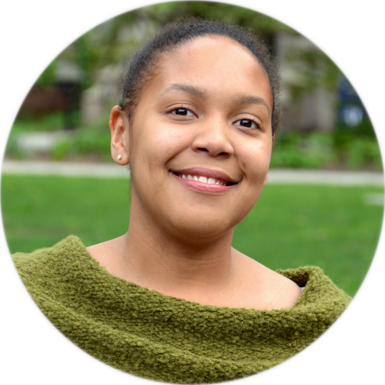

Genevieve Bates
Assistant Professor, Political Science
What is your area of research or teaching?
I study international relations, with a focus on transitional justice and human rights. My research explores how, if at all, human rights violators are held accountable for the things they’ve done, and what impact accountability can have on international and domestic politics.
Why are you excited about being at UBC?
I’m excited about being at UBC because the university has such a vibrant community of scholars thinking critically about the topics and issues I care most about. Being surrounded by so many people, both within political science and in other departments, who take seriously questions of justice, accountability, and reconciliation in the wake of atrocity is inspiring.
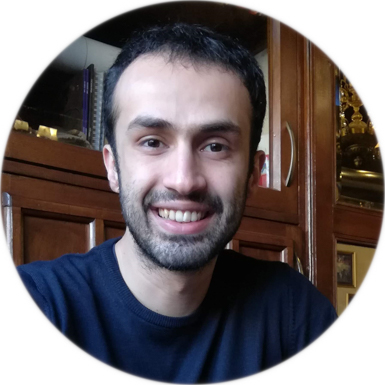

Gorkem Bostanci
Assistant Professor, Vancouver School of Economics
What is your area of research or teaching?
I study and teach macroeconomics, in particular, how workers and resources are allocated between firms. My current work analyzes how firms’ efforts to protect sensitive information from competitors lead to inefficiencies in hiring and firing practices.
Why are you excited about being at UBC?
I am looking forward to working with some of the best faculty and students out there! And to explore the karaoke scene in Vancouver.
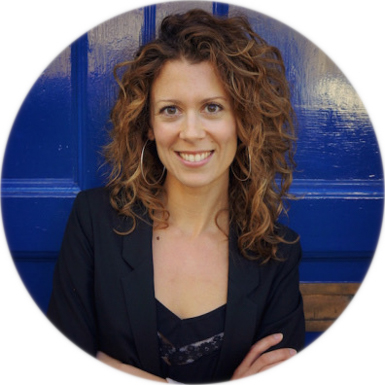

Tara Cookson
Assistant Professor, School of Public Policy and Global Affairs
What is your area of research or teaching?
My research investigates how power operates in development, and documents development’s hidden costs – especially as these relate to care work. I’m building on my book, Unjust Conditions, which engaged with notions of ‘efficiency’ and the measurement of success in development through a care lens. Now I’m zooming out from measurement to look at data-driven development more broadly. For example, how does ‘data-driven development’ shape what gets prioritized, and who gets funded, when it comes to policies and interventions seeking gender equality and a care economy? And how are tech and data science changing the Gender and Development field? I’ll be exploring these questions in a few different geographies, including a humanitarian crisis at the Venezuela-Colombia border, and rural BC.
Why are you excited about being at UBC?
The university’s commitment and ambition around the United Nations Sustainable Development Goals are highly motivating. So too is the orientation of my School, the SPPGA, which sees itself as a steward of positive change on a global scale. My colleagues are shaping policy processes in spheres as diverse as nuclear energy, protracted conflict and food systems, and accompanying students in bridging the research-policy gap through experiential learning. I’m also a proud UBC alumna, having received my Bachelor of Arts at the Okanagan campus. So it’s really a dream to go from student to scholar-activist in this institution.
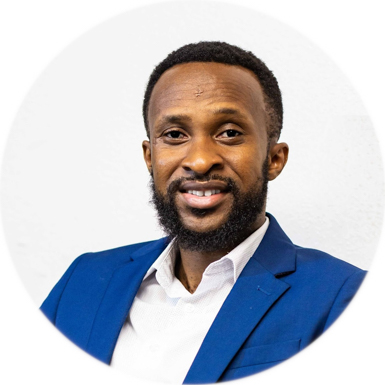

Stephen K. Dadugblor
Assistant Professor, School of Journalism, Writing, and Media
What is your area of research or teaching?
My research and teaching interests are in cultural and comparative rhetorics, public deliberation about democracy, and rhetorical genre studies, with special attention to the rhetorical practices of postcolonial African societies. I am interested in the ways that citizens’ participation in postcolonial African democracies is inflected by their cultural imaginaries and the de-colonial possibilities the study of non-Western African rhetorical traditions offers rhetoric and writing studies more broadly. My current project examines the interplay of local African modes of rhetoric and citizens’ deliberative practices in Ghana’s Supreme Court and digital public spheres in the wake of a disputed presidential election.
Why are you excited about being at UBC?
I am thrilled to join the School of Journalism, Writing, and Media at a time of program and curricula expansion, and to share in UBC’s vibrant intellectual communion. I look forward to working and collaborating with the dynamic faculty both in JWAM and across UBC, and thinking with and learning from students about rhetorical things.
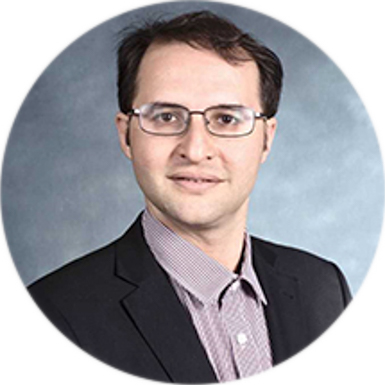

Hessam Dehghani
Assistant Professor of Teaching, Asian Studies
What is your area of research or teaching?
I will be teaching Persian language and Critical approaches to Heritage Language Education, Phenomenology and Literature, and Phenomenology and Sufism.
Why are you excited about being at UBC?
There is a huge Persianate community at UBC and a lot of incredible enthusiastic teachers and scholars to collaborate with.
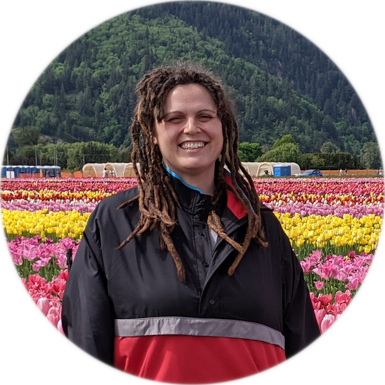

Christine Evans
Assistant Professor of Teaching, Theatre and Film
What is your area of research or teaching?
My pedagogic research focuses on bridging film theoretical, psychoanalytic, and ideological approaches with evidence-based scholarly teaching in film and media studies. My discipline-specific research focuses primarily on film theory, Lacanian psychoanalysis, and the work of Slavoj Žižek. My work has appeared in Film-Philosophy and The International Journal of Žižek Studies; my book in the series Film Thinks, Slavoj Žižek: A Cinematic Ontology, is forthcoming from Bloomsbury.
Why are you excited about being at UBC?
I started working at UBC in 2012, first as a sessional instructor and then as a lecturer, so I am already very much at home here. However, I’m really excited to begin work in this new role!
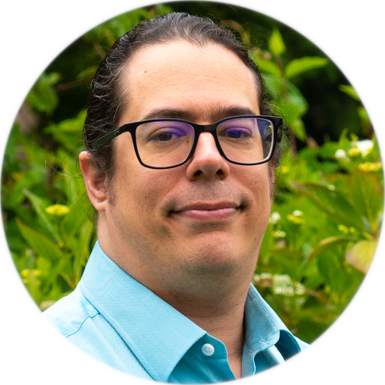

Michael Fabris
Acting Assistant Professor, Geography
What is your area of research or teaching?
As an Indigenous Geographer, my research focuses on processes of dispossession in settler colonial contexts, and the Indigenous social movements that seek to challenge these processes by reasserting Indigenous land and water relationships through their own forms of governance and legal jurisdiction. My own research builds upon existing works within both Geography and Indigenous Studies, addressing the relationship between law, settler colonialism, and assertions of Indigenous land and water relationships.
Why are you excited about being at UBC?
I’m looking forward to seeking out collaborations with other Indigenous people here at UBC. I think UBC has a long way to go, in terms of being a supportive space for Indigenous students, staff, and faculty, but with more and more of us here in a variety of positions, there’s more of a critical mass to really make the change here on campus that needs to happen.
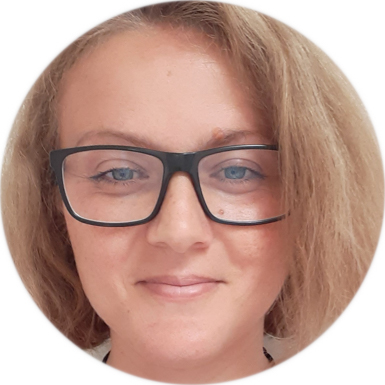

Chiara Falangola
Lecturer, French, Hispanic, and Italian Studies
What is your area of research or teaching?
I teach Italian language and culture, and I am currently interested in ways of incorporating mindfulness into pedagogy, as well as new ways of improving foreign languages curricula in the sense of inclusion, decolonization and merging of language/culture/literature. I am also interested in anything Black Italy, French & Francophone text and image, and disaster narratives.
Why are you excited about being at UBC?
UBC is a dynamic institution that supports faculty’s vision. The Vancouver campus is an amazing international village vibrating with culture and ideas where I am hoping to find a strong intellectual and human community. I am looking forward to educating myself about the Musqueam people whose (unbelievably beautiful) ancestral and unceded lands UBC lives on. I am grateful to work in a space where connection to nature is prominent, and excited to also raise our children here.
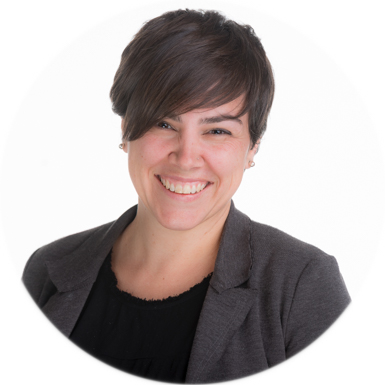

Erin Glanville
Lecturer, Coordinated Arts Program
What is your area of research or teaching?
My area of research is cultural refugee studies; I research refugee narratives, using community engaged research creation methods. My current project, Worn Words, is producing creative educational media on the ordinary words of asylum debates. In CAP, I teach research and writing skills by studying academic and creative literature about migration experiences.
Why are you excited about being at UBC?
I am excited to contribute to the Coordinated Arts Program’s interdisciplinary cohort model for first years in the Arts. I also appreciate the collaboration and resource sharing among faculty who teach in CAP.


Friedrich Götz
Assistant Professor, Psychology
What is your area of research or teaching?
My research is focused on the causes and consequences of regional personality differences. Broadly speaking, I am interested in how and why people from different places differ psychologically and what that means for countries, regions, cities, and neighbourhoods and the individuals living in these places. To study these dynamics across very different geographical, cultural, and social contexts, I collaborate with researchers around the globe, from China, Japan and Australia to Colombia, Italy, and Germany and run large-scale surveys with hundreds of thousands and sometimes millions of participants. To my great delight, this year I get to teach a graduate course that is specifically dedicated to the geographical dimension of social and personality psychology – and I am beyond excited!
Why are you excited about being at UBC?
I think the real question is: why wouldn’t I be? I am blessed with fantastic colleagues, whom I not only admire as scholars (and often have long before coming here) but also value as friends. I get to set up a young, vibrant, multicultural lab and am surrounded by passionate, gifted, and genuinely interested students. I receive a lot of support to conduct the research I care most about and teach the contents I really want to pass on to new student generations. And I get to do all of this in a gorgeous city – that caters to the part of me that is a food-obsessed urbanite just as much as it caters to the part of me that is a year-round runner and a water sports enthusiast.
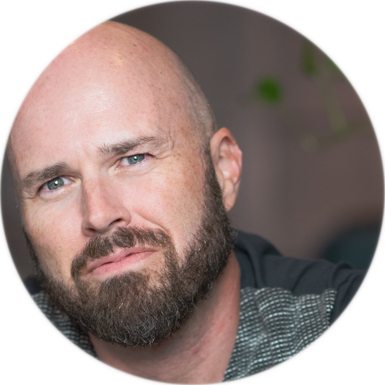

David Gramling
Professor and Head of Department, Central, Eastern, and Northern European Studies
What is your area of research or teaching?
I teach and write books about multilingual experience, literary translation, LGBTQ+ world-views, labor migration, visual disability, health care communication, monolingualism, and linguistic disobedience—all of which are part of my own life experience. The languages I work in include Turkish, German, Spanish, and English.
Why are you excited about being at UBC?
The next few decades, until I retire in 2042, are going to be times of profound change in the world, in higher education, and in this place. It’s going to take a lot of courage, honesty, compassion, and ambitious thinking to do what we need to do to build a future together. I’m here to meet and work with the students who are going to be our leaders in 2030, 2040, 2050, and beyond. I want to know what they’re thinking, what they care about, and what I can do to help them get there.
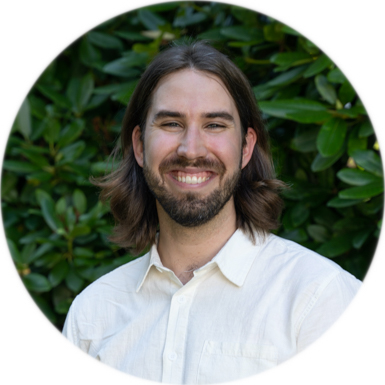

Christopher Hammerly
Assistant Professor, Linguistics
What is your area of research or teaching?
My work centres on understanding the cognitive representations and processes that underpin human knowledge of syntax (sentence structure) and morphology (word structure). I am especially interested in working with speakers of Indigenous languages, including my ancestral language Anishinaabemowin. Most of my research centres on how we use language to encode, combine, and manipulate the atomic concepts of animacy (whether something is living/non-living), person (whether someone is the speaker, the listener, or someone else), and number (whether we are referring to a group or an individual).
Why are you excited about being at UBC?
I am excited to be at an institution with a vibrant and diverse Indigenous community. The university supports a wide variety of research and encourages connections between different cultural groups, fields of study, and academic departments. UBC is made up of the tens of thousands of students who are challenging themselves to learn new ways of thinking and share their own unique perspective on the world, and I am honoured to have the chance to be a part of their journey. The Department of Linguistics in particular has a rich history of working with Indigenous communities, and I am eager to join this ongoing work and to bring my own knowledge and experience to the table.
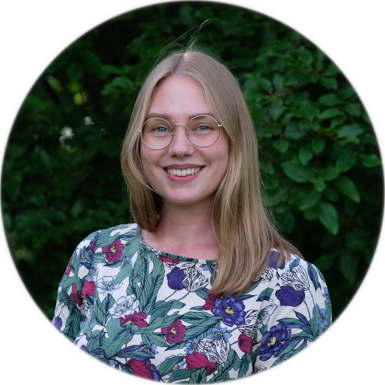

Ann-Kathrine Havemose
Lecturer, Scandinavian Studies
What is your area of research or teaching?
My research focuses on the adaptation of folklore into contemporary Scandinavian children’s literature, more specifically, the influence of the oral culture of folktales on the various uses of children’s literature. In my research, I draw on performativity theory, theories of cultural evolution, play theory, and reception theory, among others.
I teach elementary and intermediate Danish courses, courses on Scandinavian literature and culture. In my first year at UBC, I will be teaching Danish 100-110, Vikings and Norse Mythology, Topics in Scandinavian literature and culture as well as major works in Scandinavian literature.
Why are you excited about being at UBC?
I am excited about everything about this job, really: from teaching my native language, exploring and teaching all aspects of Scandinavian studies, to getting to work with the great, passionate, and welcoming team in the CENES department. Being on a beautiful campus in a beautiful city is also quite exciting.
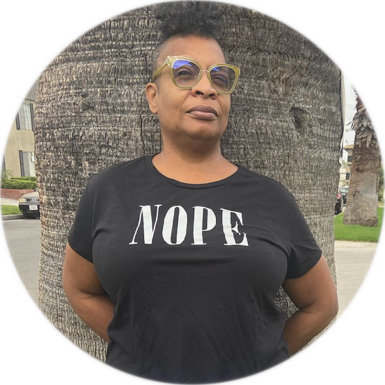

Nalo Hopkinson
Professor, School of Creative Writing
What is your area of research or teaching?
I write speculative fiction and make art informed by the Black and Caribbean artistic traditions of my heritage and through an inclusive lens. I also engage in visual arts with an approach focused on critical design.
Why are you excited about being at UBC?
My colleagues and the School of Creative Writing seem amazing. I’ll be able to focus on teaching in my chosen area of expertise. The campus is beautiful, and I’m happy to be back in Canada, my naturalized home.
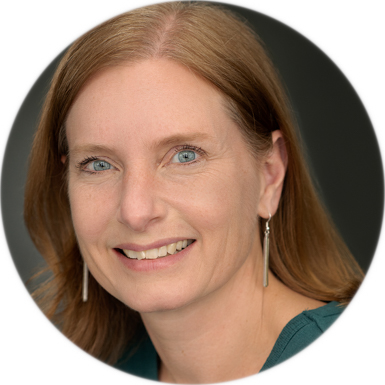

Tanya Kyi
Lecturer, School of Creative Writing
What is your area of research or teaching?
I write fiction and non-fiction for children and young adults. My most recent books include the information books Snoozefest and This Is Your Brain on Stereotypes, and the middle-grade novel Me and Banksy.
Why are you excited about being at UBC?
I love teaching and I’m excited to meet students who are just discovering children’s writing, as well as those pursuing careers in children’s literature.
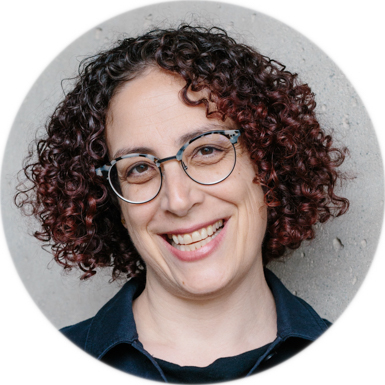

Sarah Leavitt
Assistant Professor, School of Creative Writing
What is your area of research or teaching?
I’ve been teaching comics classes in the School of Creative Writing as an adjunct and a lecturer since 2012. This year I was hired for the School’s first tenure-track position in comics. I’m a cartoonist, and my particular areas of interest include autobiographical comics, formal experimentation in comics, and comics pedagogy – developing strategies for teaching comics creation as well as exploring how comics creation shapes students’ work in other forms of writing.
Why are you excited about being at UBC?
Sometimes I have to pinch myself — do I really get to teach comics for a living? I’m most excited about the range of students I have the pleasure of teaching — from undergrad science students who are taking an intro comics class as an elective to grad students in Creative Writing who are already skilled cartoonists. The work that our students produce is stellar. I’m excited to keep developing and broadening our comics program.
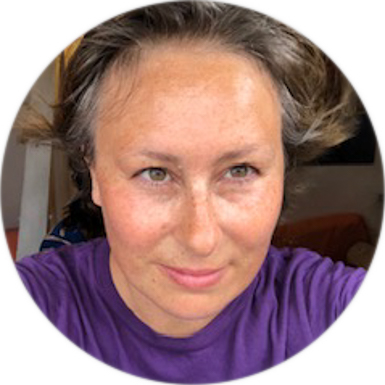

Caroline Lebrec
Assistant Professor of Teaching, French, Hispanic, and Italian Studies
What is your area of research or teaching?
French studies and French language (20th-21st century literature, writing under constraints) and educational leadership (experiential learning, inclusive pedagogy).
Why are you excited about being at UBC?
The educational and leadership opportunities, inclusive values, building partnerships and many initiatives, friendly peers & mentors, and the beautiful campus and lifestyle on the West Coast.
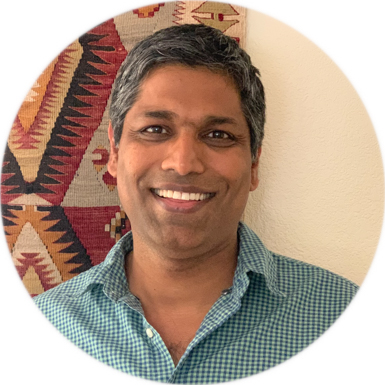

Ramesh Mallipeddi
Associate Professor, English
What is your area of research or teaching?
I work on Restoration and Eighteenth-Century British Literature, with an emphasis on histories of colonialism and racial slavery. My monograph, Spectacular Suffering: Witnessing Slavery in the Eighteenth-Century British Atlantic (2016), shows how enslaved African people contended with the forces of capitalist abstraction and produced a melancholic counter-discourse on slavery. I am now at work on a book project, Expendable Lives, Disposable Lands: Racial Ecologies in Eighteenth-Century British Literature, that traces the conjoined histories of capitalist modernity, imperial expansion, and climate change within the context of plantation agriculture. I am also the editor of Eighteenth-Century Studies, the flagship journal of the American Society for Eighteenth-Century Studies (ASECS).
Why are you excited about being at UBC?
I’m delighted to be joining the dynamic and vibrant Department of English Language and Literatures at UBC. The university is located in a large city. UBC’s student body is international. Students come from a range of socio-economic and cultural backgrounds. I see it as a real asset and am eager to make literary study meaningful and exciting to our diverse groups of students.
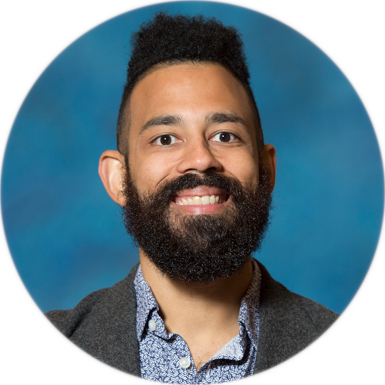

Louis Maraj
Assistant Professor of Research, Journalism, Writing, and Media
What is your area of research or teaching?
My scholarship and teaching focus on rhetoric, theoretical black studies, digital media, and critical pedagogies. It specifically addresses anti/racism, anti/blackness, and expressive form.
Why are you excited about being at UBC?
I’m excited about collaborating with colleagues here to develop ideas, curricula, and world-making pedagogies. I look forward to conversations with students about the ways that knowledge-making and media are entangled in systems of power, so we might work together to create spaces to think and live otherwise.
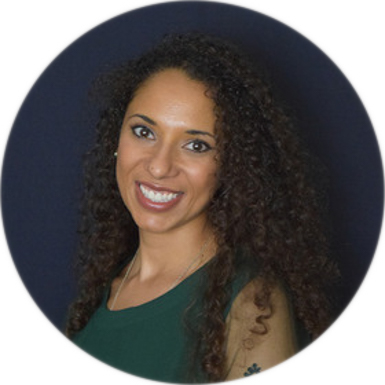

Alexis McGee
Assistant Professor, School of Journalism, Writing, and Media
What is your area of research or teaching?
My research lies at the intersections of Black feminist theory, Black rhetoric, language, and literacies; sound; and pedagogy. Pulling these threads together, my first manuscript, From Blues to Beyoncé: A Century of Black Women’s Generational Sonic Rhetoric, largely argues that music has served/still serves as a pathway for Black women to teach subsequent generations about resistance, survival, and liberation.
Why are you excited about being at UBC?
I’m excited to be living, working, and learning among world class communities.
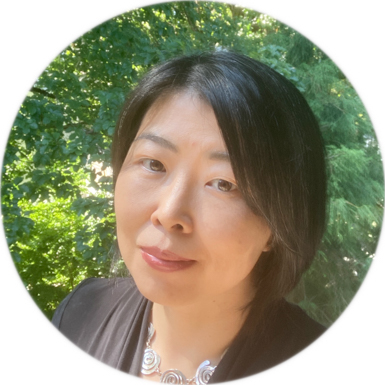

Fuyubi Nakamura
Assistant Professor, Asian Studies
What is your area of research or teaching?
I am a socio-cultural anthropologist and curator. I explore the relationship between art and anthropology, and engage with public humanities in a diverse range of creative and interactive research formats including exhibitions. My ongoing research is about the aftermath of the Great East Japan Earthquake or 3.11, and one of the outcomes of this project is the exhibition, A Future for Memory: Art and Life after the Great East Japan Earthquake at the Museum of Anthropology at UBC (on until September 19, 2021).
Why are you excited about being at UBC?
I am honoured to be an uninvited guest on the unceded territory of the xʷməθkʷəy̓əm (Musqueam) people. I have been working as the Curator for Asia at MOA for the past seven years, and recently got reappointed as faculty. I am cross-appointed with MOA and Asian Studies. I was an Associate Member of Asian Studies for the past six years, and I am happy to be joining the department as faculty so that I can get more fully involved. MOA is known for its First Nations collection, but the Asian collection is actually the largest collection, around 40% of its total holdings at the museum. I have worked with many colleagues in the Faculty of Arts around this rich and diverse collection. It is great to have such a rich cultural resource on campus for teaching and research.
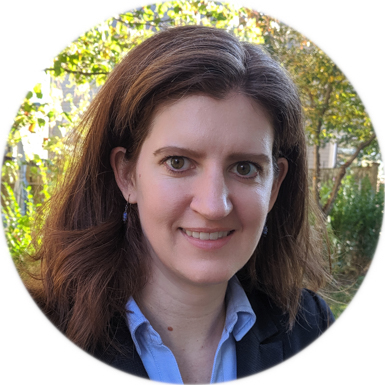

Laura Nelson
Assistant Professor, Sociology
What is your area of research or teaching?
I am a computational social scientist, which means I use computational techniques, such as machine learning and natural language processing, to analyze and extract insight from large amounts of social data — anything from historical archival documents, to websites, to social media, to data collected from apps used in workplaces. Focusing on social movements, culture, gender, and organizations and institutions, my research has examined processes around the formation of collective identities and social movement strategy in feminist and environmental movements, continuities between cycles of activism and the role of place in shaping social movement activity, intersectionality in women’s movements, and gender inequality in startups, entrepreneurship, and STEM fields in higher education.
Why are you excited about being at UBC?
UBC is well known for its impactful research — both academically but also research that addresses real-world problems. I am excited to connect with colleagues, as well as curious and motivated undergraduate and graduate students, to contribute to and support the overall research community at UBC.
UBC also has many connections to international communities and institutions. As someone who collaborates with scholars in multiple countries, I’m excited to continue these international collaborations and to connect to more scholars, students, and institutions across the world. Finally, I’m thrilled to contribute to UBC’s mission of educating and training the next generation of students and to support public education as a resource for all.
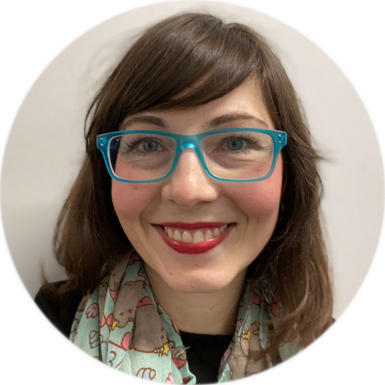

Elizabeth “Biz” Nijdam
Lecturer, Central, Eastern, and Northern European Studies
What is your area of research or teaching?
My research and teaching turns to comics, graphic novels, and new media to explore alternative ways of engaging and representing historical and contemporary experience. In particular, I look at what comics and video games can bring to discourses on history and memory and issues of agency in representations of forced migration.
Why are you excited about being at UBC?
I’m excited to be teaching at UBC in the Department of Central, Eastern, and Northern European Studies because it has given me the opportunity to explore my research and teaching interests from a transnational perspective, while collaborating with scholars from diverse disciplines in my own department and across campus.
Moreover, as a white settler raised on the West Coast of what is now Canada, it is an honour to be teaching on the traditional, ancestral, and unceded territory of the xwməθkwəy̓əm (Musqueam) people and for an institution that is taking the Truth and Reconciliation Commission’s Calls to Action seriously. Alongside continuing education in Indigenous Studies, I look forward to supporting my department in meeting the goals of UBC’s Indigenous Strategic Plan.
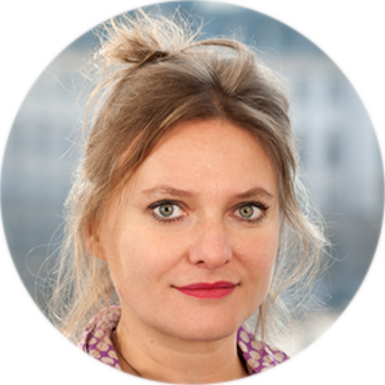

Katharina Piechocki
Assistant Professor, French, Hispanic, and Italian Studies
What is your area of research or teaching?
My research focuses on early modern French and Romance literature, in particular theatre, opera, cartography, gender, affect, and translation studies. Having studied French, Italian, and Portuguese as well as Theater, Film, and Media Studies at the University of Vienna and Paris 3-Sorbonne Nouvelle, I completed two doctorates, in Romance Studies (University of Vienna) and in Comparative Literature (NYU). I am the author of Cartographic Humanism: The Making of Early Modern Europe (U of Chicago Press, 2019) and the co-editor of a special double issue of Romance Quarterly on “Clouds.” I am now completing my next book, titled Hercules: Procreative Poetics and the Origin of the Opera Libretto.
Why are you excited about being at UBC?
I am thrilled to join UBC’s vibrant faculty and to move to the West coast, after teaching at Harvard University for almost a decade. The Department of French, Hispanic, and Italian Studies is exceptionally dynamic, forward-looking, and interdisciplinary—it will be a great pleasure to work with my colleagues and to get to know UBC’s diverse and lively student body! I am always eager to learn from colleagues and students and look forward to making a difference.
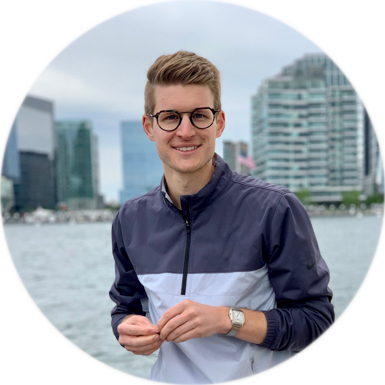

Ethan Raker
Assistant Professor, Sociology
What is your area of research or teaching?
I study the social and demographic consequences of climate-related disasters. In particular, I am interested in understanding the effects on human health and well-being and for community well-being. My work interrogates the role of social contexts and political institutions in creating the conditions for disaster and in responding or changing in ways that exacerbate racial and socioeconomic inequalities.
Why are you excited about being at UBC?
I am excited to be at UBC because it is an exceptional place to be a social scientist working on health, climate, and inequality. I look forward to tapping into resources across the university and working with students to push forward important research and teaching that addresses some of the most pressing contemporary issues in Canada and beyond.
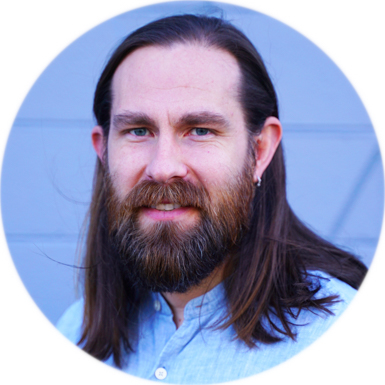

Dan Starling
Assistant Professor, Art History, Visual Art & Theory
What is your area of research or teaching?
My work attends to how strategies of intervention, extrapolation, repetition and recombination of existing narratives serve to challenge the myths necessary to maintaining the status quo; How art can create friction to rupture and de-stabilize normative narratives; How art can leap into the past to re-situate present cultural, social, and political configurations; How art’s speculative fictions open the door to an equitable future. My most recent series of prints Unsettled Histories will be shown in a solo exhibition at the Burnaby Art Gallery in February 2022.
Why are you excited about being at UBC?
My passion for creating artworks using experimental methods in print media is unrivalled and given my background in a diverse range of art practices, I am especially excited about teaching traditional print media techniques and how they complement and challenge other media such as photography, sculpture, drawing and artist books. I’m excited to help build print media as a collaborative hub within the university.
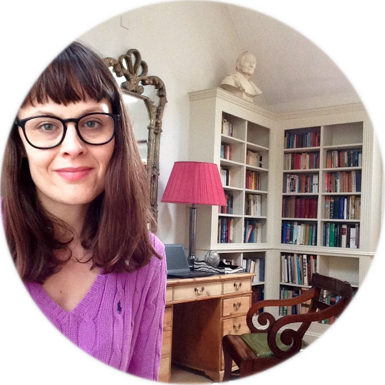

Willow Verkerk
Lecturer, Philosophy
What is your area of research or teaching?
I specialize in modern and contemporary European philosophy, especially the German philosopher Friedrich Nietzsche and his legacy in 20th century French thought. My current research is focused on the metaphysics of gender and engages with contemporary continental feminist philosophy to propose a new account of gendered mimesis. At UBC I teach continental philosophy, ethics, the philosophy of sex and gender, and social and political philosophy.
Why are you excited about being at UBC?
I am delighted to be joining the Department of Philosophy at UBC and being part of an innovative research institution that supports diversity and inclusion. I am looking forward to building relationships with other colleagues in my department working in feminist theory and the history of philosophy. Most of all, I’m excited about empowering students to think more critically (and creatively) about continental and feminist philosophy!
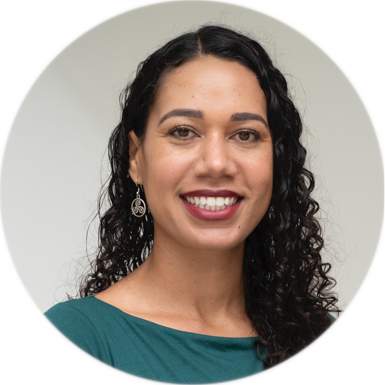

Crystal Webster
Assistant Professor, History
What is your area of research or teaching?
I am a scholar in early African American history with specializations in childhood/youth and carceral studies. My first book is titled Beyond the Boundaries of Childhood: African American Children in the Antebellum North and it examines the process of emancipation in the U.S. North in places where freedom was granted to African Americans after they grew up into adulthood. My new research is on the development of prisons during the late eighteenth and early nineteenth centuries and how ideas of crime and punishment disproportionately impacted African Americans.
Why are you excited about being at UBC?
I am thrilled to be at UBC to have the opportunity to work with faculty and students who are engaged in innovative teaching and research. I look forward to joining a university that has implemented strategic hiring to advance diversity, as well as initiatives for indigenous engagement and reconciliation.
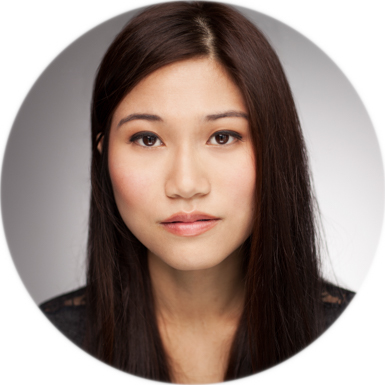

Lindsay Wong
Lecturer, School of Creative Writing
What is your area of research or teaching?
I will be teaching CRWR 505 (Advanced Nonfiction) during the 2021-2022 academic year; previously, I taught CRWR 405 (Creative Nonfiction) and CRWR 403 (Writing for Young Adults and Children). My areas of research include memoir, YA, as well as literary and upmarket adult fiction. Currently, I am working on a collection of “immigrant horror stories” and a darkly comedic novel about bridesmaids who inadvertently sell their souls to a demon bride. My work explores identity, diaspora, dysfunctional families, mental illness, mother-daughter relationships, while merging surrealism and zany absurdism in genre-blending ways.
Why are you excited about being at UBC?
I had the privilege of attending UBC as an undergraduate, and I’ve worked closely with BFA creative writing students since 2020. The students who have enrolled in my workshops have demonstrated incredible engagement, passion, and immense dedication to the craft. I love being able to mentor aspiring/emerging writers and witness writing styles and projects evolve into polished manuscripts. Being an instructor, a creative writing coach, and a mentor is so inspiring to me, and I’m very grateful to be part of a vibrant literary community with talented students and phenomenal colleagues.
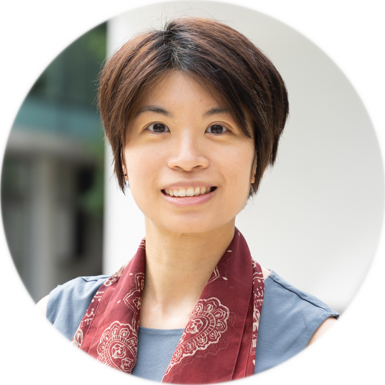

Helena Wu
Assistant Professor, Asian Studies
What is your area of research or teaching?
My research and teaching interests are Hong Kong cinema, literature and culture. I am particularly interested in examining how cultural practices, consumption and discourse pose responses to value change and identity contestation in society. With my interdisciplinary training in comparative literature, cultural studies and sinology, I am keen on developing interdisciplinary approaches to textual and visual narratives, popular culture, creative industries, and identity studies. One of my most recent publications is my monograph, The Hangover After the Handover: Places, Things and Cultural Icons in Hong Kong (Liverpool University Press, 2020), where I explored the changing perception of the concept of the local across colonial and post-handover Hong Kong through the lens of cultural icons.
Why are you excited about being at UBC?
I am thrilled to become a member of UBC’s Faculty of Arts by joining the Department of Asian Studies as an assistant professor in Hong Kong studies. I grew up in Hong Kong and pursued my studies in Hong Kong and Europe. I enjoy living and working in a multicultural, multilingual environment. I share the Asian Studies Department’s goals of cultivating the understanding and appreciation of different cultures, histories, languages and communities. What’s more, among the many reputed projects and programs at UBC, the Hong Kong Studies Initiative and the Cantonese Language Program are both pioneers in facilitating and fostering the study of Hong Kong and Cantonese through teaching and research on a global level. It is my pleasure to be able to work with so many brilliant minds at UBC!
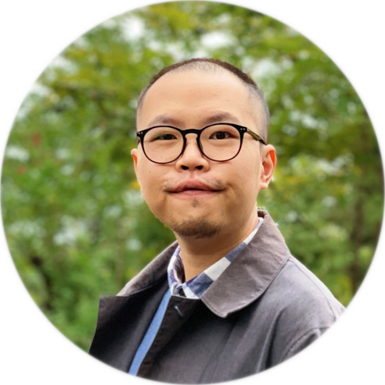

Shoufu Yin
Assistant Professor, History
What is your area of research or teaching?
I am a historian of political culture and thought. I specialize in Chinese history from the eleventh to the seventeenth centuries with an emphasis on Eurasian and global perspectives. I work extensively with official documents in different languages—Chinese, Manchu, Persian, and Latin, to name a few—to understand how ordinary individuals worked with the empire and theorized politics. I excavate the intellectual worlds of many previously under-represented groups, including peasant women who fought in wars, Mongol scribes who processed imperial documents, or anonymous typesetters behind the production of many books. Ultimately, my passion lies in writing a new kind of history; a history of ideas and philosophy that foregrounds the contributions of these individuals.
Why are you excited about being at UBC?
Over the past years, I have been learning so much from the amazing works of my colleagues. I feel so excited that I have the opportunity to work with them! I very much look forward to working with my students, and teaching new courses on the histories of Eurasian empires, human-animal relationships, and global political thought. In this unceded territory of the xʷməθkʷəy̓əm (Musqueam) people, I hope to teach Manchu and Tungusic cultures in a way that can bring experiences on the different sides of the Bering Strait into closer dialogue with each other.
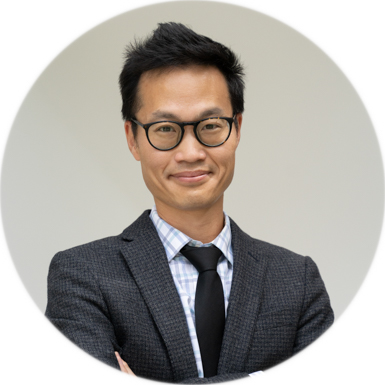

Philip Yoo
Assistant Professor, Classical, Near Eastern and Religious Studies
What is your area of research or teaching?
In my research, I am interested in the complex dynamics surrounding the composition of the Hebrew Bible and its interpretation among the earliest Jewish communities. Currently, I am working on a book project that looks at how different reports of the same event were interwoven into a product that emerges as scripture, while highlighting the diverse outlooks of the cosmos that are preserved in biblical and related literature. As a teacher, one of my goals is to give students the tools to read texts closely and examine the ways these texts and the ideas contained in these texts continue to impact our communities (in good ways and bad).
Why are you excited about being at UBC?
It’s a pleasure to join the vibrant intellectual community at UBC and the Department of Classical, Near Eastern and Religious Studies! As the study of the ancient Mediterranean and Near Eastern worlds becomes more interdisciplinary, I look forward to collaborating with interdepartmental colleagues and working with staff and students to promote diversity and inclusion on campus.
